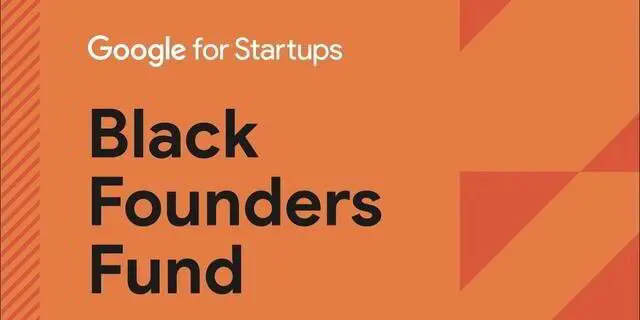20/07/2022 14:28
These are the experiences of the panel at the 9th Blackout Tuesday, a quarterly event hosted by LocalGlobe, and the second anniversary of the concept since George Floyd’s murder in 2020, which boosted a more public discussion on racism.
Blackout Tuesday keeps the conversation alive around the issues facing the Black community within venture capital (and beyond) and is a long-term commitment to the systemic changes needed for a more equitable ecosystem. This means ensuring more Black founders receive funding, more Black talent in senior roles, and representation of Black academics, particularly within STEM (Scientific, Technology, Engineering, and Mathematics).
To set the scene, Black founders are grossly overlooked and underestimated with only 0.24% of funding going to Black founders and only 0.02% of that going to female Black founders.*
The lack of funding has nothing to do with a shortage of Black entrepreneurs though. The Black Report (co-authored by Andy Davis, 10×10) dashed that thought, revealing that the problem was a lack of investment and support.
Sharing the lessons learned
The 125-strong audience, Blackout Tuesday’s largest yet, was regaled with the real-life experiences of some incredible founders who are making their mark, securing funding, and moving the dial.
10×10 co-founder, Andy Davis, hosted the panel and was joined by Josephine Philips, founder of SoJo, a D2C circular fashion startup; Rachael Palmer, head of VC and Startups at Google; Prudence Perrson, founder and CEO of Manje Health, a chronic health treatment platform in Africa; Karl Lokko, co-founder and chairman at Black Seed, a fund led by Black founders for Black founders; and Wilfrid Obeng, co-founder and chief technical officer at AudioMob, an in-game audio advertising format.
Taking it back to 2020, founders Prudence and Wilfrid were already on their journey with their respective startups, both pivoting from their initial concepts. Rachael and Karl both wanted to provide a funding solution for Black founders and to help the Black community thrive in response to George Floyd’s murder.
And SoJo was still an idea in the making for Josephine Philips. But that journey soon took off and Josephine shared her epic and rapid fundraising round story (raising £300k in just four weeks – in comparison to the average three to six months!) but was quick to add how the steps up to that point were slower and more alone.
Josephine started out by bootstrapping SoJo, mostly because of her cynicism about venture capital (VC) and the entrepreneurship landscape, and not having the network to guide and support her. In steps Andy Davis and angel investor, Yvonne Bajela, who changed Josephine’s attitude to VC and the power of spending time with founders and investors. A strong mindset and the resilience to take rejections was a key lesson.
“Having those people [around you] who’ve been there is game changing. Get those kinds of people around you. It’s pivotal to your business and your mental state when becoming a founder.”
Prudence Perrson’s startup, Manje Health – a health tech platform that connects the health industry across Africa – was born from a desire to be part of a solution. Based in Sweden, where she moved to do her scholarship, Prudence pivoted from being a consultant.
“It takes a lot of courage, as a consultant you have a pipeline and that can get quite comfortable. I didn’t want to keep pushing other people’s solutions into Africa; I wanted to be a part of that and build something that could be sustainable.”
The challenge was: who was the customer and who was going to pay for it? After a year of creating a clear business model, the Swedish incubators and the Black community helped to validate the idea and Prudence spoke to everyone! From African doctors to the diaspora who are navigating healthcare payments for loved ones back home to African employers and their employee healthcare plans. It gave her the validation she needed.
At the same time, Rachael Palmer proposed the Black Founders Fund back in 2020 and it’s been a success, led by the founders they’ve invested in. They gave out £2m and within six months the cohort had turned that into £63m and now it’s £81m, creating 100 jobs along the way. “At Google, when you do well, they give you more. And that’s exactly what they did. It’s been amazing to see the company get behind this in such a big way. It’s been amazing to see the reaction within the ecosystem, specifically among Black founders.”
So, on the back of these success stories, is the path changing to gold for Black founders and Black investors?
Though progress has been made, it’s not enough and often the focus is too heavy on mentoring and guidance rather than investors putting their money where their mouth is. Rachael and Karl both pointed out that the Black community is “over mentored and underfunded”.
Despite Rachael’s glowing review of the Google fund, when talking to founders she said they still feel the pain of over-mentoring and being over-advised. “Less talk and more action.”
Wilfrid agreed and echoes everything that Rachael says. He spoke of how VC firms always ask founders how much they listen to their customers and how much they know about the end customer, yet feels that a lot of VC firms don’t appear to be applying that to their founders.
“I go to a lot of VC talks and it’s all about talking rather than listening. That’s the cardinal sin if you want to solve a problem. If you’re asking someone what the problem is and you’re speaking rather than listening; you’ll never solve the problem. A lot just want to be seen as solving the problem.”
Planting the seed for Black founders
Karl shared the origins of Black Seed. The fund is co-founded with Cyril Lutterodt, who had shared his timely startup idea, Zoi, with Karl just one week before George Floyd’s murder. Cyril had the tech, the patents, and the partners, but had pitched to 100 VCs and not raised a penny. Karl said Cyril was candid in reaching out to him because of his network or as Karl refers to it: ‘acquired nepotism.’ Two to three calls later and they had the pre-seed fund Cyril needed.
But, it’s not been an easy ride to establish that kind of network and it’s not been easy to raise a fund.
“You hear the chorus of commitments from all these institutions…as if the tectonic plates have really shifted and it’s going to quake us into a position of equal opportunity and equality. The world we live in is a far cry from that.”
Born out of frustration and opportunity, Black Seed was established: “We made the best offering we could and made it as unapologetically Black as possible.” The hard work has paid off and Black Seed has made first close on a £10m fund and is “officially in the game.”
Key takeaways: Expectation vs reality of fundraising for Black founders
Wilfrid
- Get comfortable with rejection and failure. “It’s about how you step back and take that rejection.”
- Network and talk about what you’re doing. “If you’re not at these events and you’re not in the room, you won’t have access to these people.”
- Don’t underestimate the power of social media. One of Wilfrid’s investors – someone he’s never met – invested off the back of a LinkedIn post that he shared.
Prudence
- Fundraising in countries with a small Black community, like Sweden, can be tougher. “The relationship between Sweden and Africa is predominantly seeder at this stage. It’s aid more than trade so it’s a really tough sell.”
- Find the connection. Prudence’s incubator started a VC and she was the first investee. It was a brilliant arrangement, but without it Prudence doesn’t think she’d have got the funding she needed.
Josephine
- A quick-fire fundraising round means rejection after rejection with no time to rest before the next pitch.
- A Dutch female fund for diverse founders was great news for Jospehine but she’s keen to draw attention to how that’s the only way she secured funding. That said, she can’t wait “to create some fat returns for these incredible people who were investing in underrepresented founders from the beginning.”
- Warm intros from investors who gave incredible introductions were key and also pulled in other investors that wanted to be part of SoJo’s journey.
Karl
- Fundraising for a fund is also tough. The mindset shift hasn’t happened yet so “unconscious bias is still quite loud.”
- Seizing the window of opportunity, Black Seed always had the future in sight of scaling up, hence not “going down the path of least resistance with angels.” They knew they would have exhausted the angels and needed to call on the institutions anyway.
- And though the pitching was hard, the due diligence was even harder. In hindsight, they would have raised for general partner (GP) first as for first-time funders, it’s a lot of work and no gains for a long time!
Stepping forward – what’s next?
As the wild card, Black Seed is creating awareness. The team will keep raising money and keep incubating. “We can’t back everybody but we’re going to try our best.”
Manje Health’s platform 2.0 launches later this year for more than 250 hospitals in 51 African countries. Prudence shared: “Everything we do is based on feedback and validation so, if you have the expertise or can see how you can contribute to our growth journey, please do reach out.”
Now the foundations are laid, SoJo’s focus is on building stronger foundations for the next rounds. “We’ve just raised so we’re looking to hire. It’s not even for a specific role. Andy [Davis] is always saying to just ask everyone if they know someone incredibly talented.”
At AudioMob, Wilfrid said growth is key and they’re hiring across the business. They’re building on partnerships – outside of gaming too. “The most important thing for me is to get more people who look like me into the ecosystem.” Wilfrid wrapped up with three top tips: 1. Enter the room with confidence (or fake it!). 2. Negotiate. 3. Don’t have an inferiority complex. “The VC is the one with the money but you have to realise that the VC is only talking to you because they want you to 10x their partners’ money!”
For Rachael, the focus is on whether we are driving the change needed externally. And how do we sustain it? Her equity-free fund was born out of the wake of George Floyd and people move on to other issues.
“This change takes time and commitment. It’s change for the long-term.”
At Newton Venture Program, we know change is needed. Be a part of the disruption. See how here.
*Extend Ventures, 2020. Diversity Beyond Gender Report

